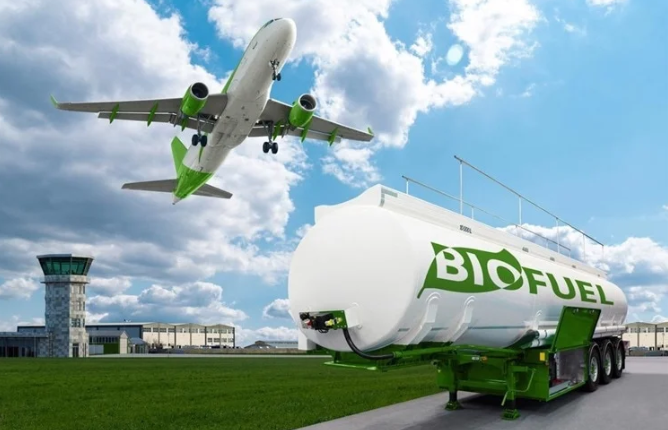Emerging trends
The time for sustainable aviation fuel is NOW.

Sustainable aviation fuel (SAF) is a biofuel used to power aircraft, that is chemically almost identical to conventional fuel but with a significantly lower carbon footprint. It can be produced through a variety of feedstocks and combined with fossil jet fuels to help lower emissions. This includes used cooking oils, food waste, forestry and agricultural waste, algae and direct captured air.
Depending on the feedstock used, SAF can reduce the amount of emissions drastically compared to conventional jet fuel. Therefore, it has a critical role in meeting the aviation industry’s environmental and sustainability goal of being carbon neutral by 2050.
The aviation industry currently produces more than 2% of the world’s emissions, with forecasts from the International Air Transport Association (IATA) predicting air passenger levels will almost double by 2036, combined with air cargo volumes set to almost double pre-pandemic levels by 2025.
What are the other advantages of using SAF?
Economic Benefits:
Sustainable aviation fuels may provide a number of benefits to both the local and wider communities.
Developing nations that have land unsuitable for food crop could use it for feedstock growth, as well as farmers across the globe that could profit from selling biomass crop when food crop is out of season. Not only that, but an increased growth of feedstock would equate to additional jobs being generated. It is estimated that around 14 million jobs could be created from this increased production level.
Environmental Benefits:
The aviation industry has a huge opportunity to reduce its environmental impact due to sustainable aviation fuels. In comparison to fossil fuels, SAF can cut carbon emissions by up to 80%. Ongoing studies also suggest that there is a possibility that they absorb more CO2 than they emit into the atmosphere.
Biomass crops can aid in reducing erosion and enhancing both the quality and amount of water. Additionally, they can assist farmers all throughout the world by boosting biodiversity and storing carbon in the soil. SAF is created from wet wastes like sewage and manure. This helps lessen the pollution burden on watersheds and prevents dangerous methane gas – a key contributor in climate change – from entering the atmosphere.
Improved Aircraft Performance:
Many SAFs contain far fewer components than conventional fuel, which allows them to burn cleaner and more efficiently within an aircraft engine. This equates to fewer emissions surrounding the airports during takeoff and landing.
If you’re interested in learning more about how CharterSync can help you, get in touch!
Our friendly, world-class sales and operations team are on hand 24/7 to offer round-the-clock support.

NEWSLETTER